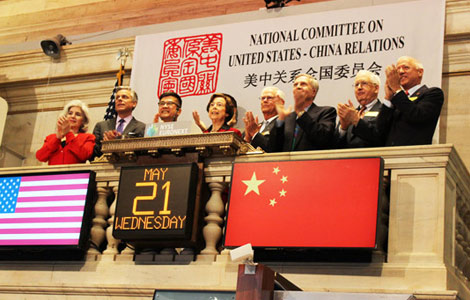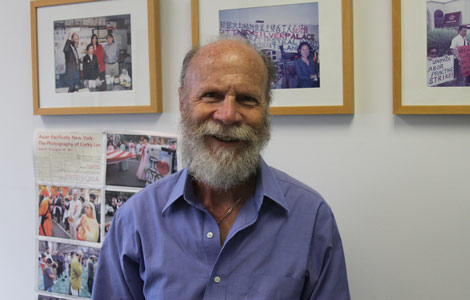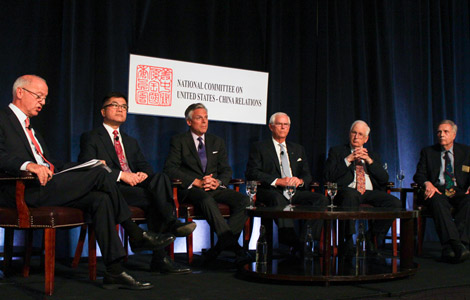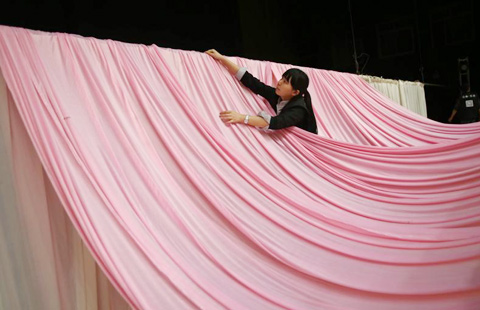Opinions mixed on subway ban of food, drinks
Updated: 2014-05-23 08:06
(China Daily)
|
||||||||
Beijing's legislature is considering whether to allow people to eat and drink on subway trains, as members of the city's People's Congress urged on Thursday that such behavior be banned.
 |
| Special: Bans of the year |
The committee submitted review opinions on Thursday of a draft to enhance the safety of the city's subways.
When it first came out for public review in February, the draft of Regulations on Beijing Railway Transportation Operation Safety said that eating and drinking should be prohibited on subway trains. However, the city's government deleted the stipulation when it submitted the draft to the standing committee of the city's People's Congress for review on Thursday.
"Eating and drinking doesn't have much direct relation to the safety of the subway operation," said Yang Hong, an official with the city's Legal Affairs Office, as quoted by China National Radio.
Additionally, she said, a large number of personnel would be needed to enforce the prohibition, which, if it becomes law, won't be effective if enforcement lags.
However, Guo Pujin, director of the Urban Construction and Environment Protection Committee, believes otherwise.
"Eating and drinking in the carriage of the subway may cause disputes between passengers and between passengers and the operators of the subway, as food and drink may be spilled or give out an unpleasant smell," Guo said when announcing the committee's review opinions.
Li Wenjie, an official with Beijing Subway Line 8, agreed.
Li said she has received reports of people who slipped and fell in stations and in carriages because they stepped in food or drink that had spilled on the floor.
One woman even broke a bone, she recalled.
"In the carriage, it's more often that the food and drink spill out, burning other passengers or staining their clothes, and the two sides fall into a brawl," she said. "Getting the report of such cases, our employees have guided these passengers out and handed them over to the police in the station."
If the prohibition becomes law, the employees of the subway lines will have something to fall back on when dissuading passengers from eating and drinking, she said.
However, it would take a special team of law enforcers to patrol subway carriages, because the stewards focus on driving the train and don't have time to supervise passengers' behavior, she said, adding that stewards also lack the authority to levy fines against violators.
It's also difficult to patrol the carriages in peak hours, she said.
Chen Haibo, 28, who takes the subway to work, said he would welcome the enactment of such a ban.
"I never eat on the subway," he said. "The air in the train in the morning peak hour is already very stuffy, and food gives out a smell that further deteriorates the air quality. But I don't think the ban, if legalized, will be effectively implemented, as some people believe it is their right to eat and drink in the train."
Contact the writer at wangqingyun@chinadaily.com.cn
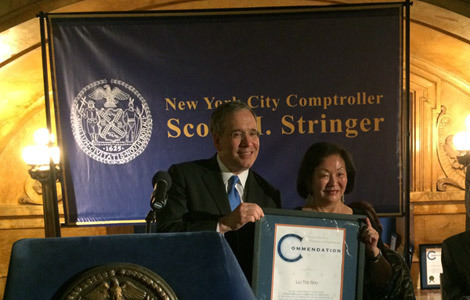
 NYC comptroller honors Chinese businesswoman
NYC comptroller honors Chinese businesswoman
 JD records largest IPO of China firms in US
JD records largest IPO of China firms in US
 Chinese farmers' art paintings score at UN
Chinese farmers' art paintings score at UN
 Star fronts for ancient Chinese city
Star fronts for ancient Chinese city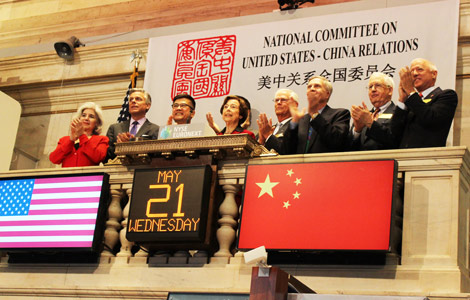
 Former ambassadors ring the closing bell
Former ambassadors ring the closing bell
 Silk road shuffle
Silk road shuffle
 Largest Chinese group ever is visiting US
Largest Chinese group ever is visiting US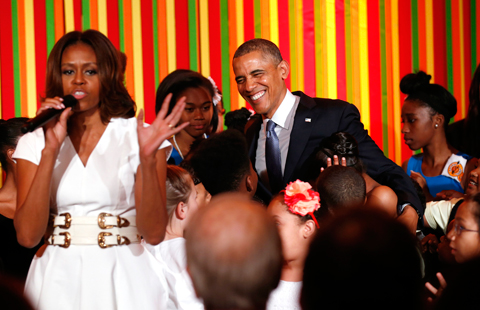
 US first lady promotes role of arts in education
US first lady promotes role of arts in education
Most Viewed
Editor's Picks

|

|

|

|

|
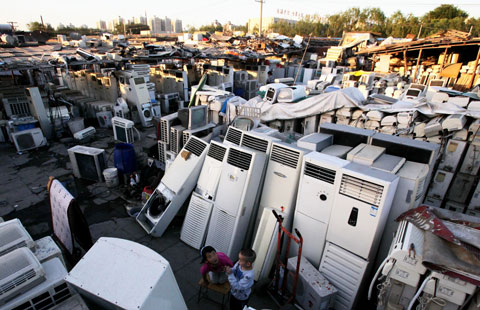
|
Today's Top News
US condemns market attack,experts call for stronger anti-terrorism campaign
Obama puts out 'Tourists Welcomed' sign
Lucy Li, at age 11, makes US golf history
China demands charges be dropped
US should rebalance its 'rebalance' policy
31 dead, 94 injured in Urumqi explosions
China upgrades cyber-security
US must 'get used to China's rise'
US Weekly

|

|
